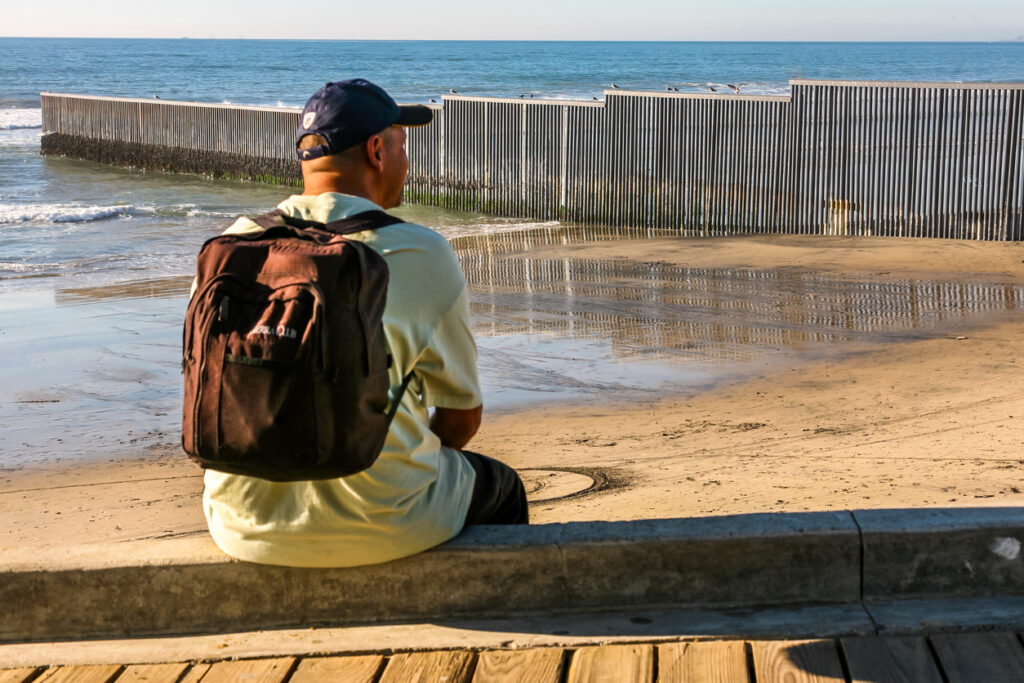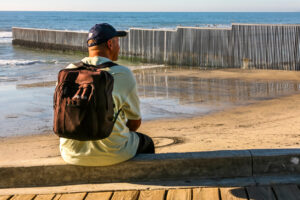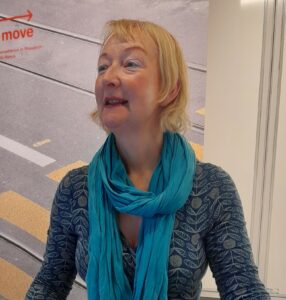New Narratives:Refugees Encountering Loneliness

Through ‘New Narratives’, we’ll explore the multi-faceted nature of loneliness by sharing insights and stories from as many perspectives as possible, not only to help bridge the gap between isolation and connection but to also enrich our community’s understanding of loneliness.
Today’s narrative has been written by Louise Ryan, Senior Professor of Sociology and Director of the Global Diversities and Inequalities Research Centre at London Metropolitan University.
‘I am lonely here… I feel like I am alone’:
recently arrived refugees encountering loneliness in new places
For forcibly displaced persons, the sudden loss of their homes, possessions, jobs, status and lifestyle is devastating and traumatic. Moreover, this sense of loss is compounded by the shattering of their personal networks. Their social ties to relatives, friends, colleagues and neighbourhoods become ruptured and scattered as people are displaced and relocated to varied places. Harsh immigration regimes, including narrow definitions of ‘family’, may mean that when refugees are offered asylum they are often forced to leave behind their extended networks of relatives including aged parents and adult children. As a result, most of those formally granted refugee status in countries like the UK are either single individuals or nuclear households of husband, wife and dependent children.
 After being granted status, refugees are often dispersed to areas around the country, including some small towns and even villages where there are few people with a shared ethnic, linguistic or religious background. Research from a range of countries including Netherlands, Germany and Sweden, as well as the UK show the importance of friendship for newly arrived refugees but also the barriers they face to forging new relationships with local people. Of course, language is often a key barrier and it can be difficult to forge deep, meaningful intimacies and build trust if you cannot converse with local people. But other barriers occur too.
After being granted status, refugees are often dispersed to areas around the country, including some small towns and even villages where there are few people with a shared ethnic, linguistic or religious background. Research from a range of countries including Netherlands, Germany and Sweden, as well as the UK show the importance of friendship for newly arrived refugees but also the barriers they face to forging new relationships with local people. Of course, language is often a key barrier and it can be difficult to forge deep, meaningful intimacies and build trust if you cannot converse with local people. But other barriers occur too.
Building up meaningful relationships takes time but also opportunities for sustained interaction to establish mutual trust and understanding. It may be difficult to meet local people and forge new friendships without opportunities to interact regularly in shared spaces. Work and educational establishments are key places where newcomers could interact with mixed groups of people from different backgrounds. However, if they are not yet in employment or studying, refugees may miss these opportunities for regular interaction.
Moreover, precisely because they have lost their possessions, homes, livelihoods, many refugees are now in reduced financial circumstances. As a result, they have little money to spend on socialising. This also reduces opportunities to meet new people.
For refugees who are processing trauma, it may be hard to establish trust. People can be reluctant to share their past experiences with newly met acquaintances. As some of the participants in our studies told us, they tend to ‘mask’ or conceal the true horrors of what has happened to them. It is too painful to talk about. Thus, there is a tendency to keep conversations ‘light’ and avoid sharing details. This can also create a barrier to new friendships.
However, that is not to suggest that all the barriers, hesitancy and reluctance are all on the part of refugees. Local, established populations may resist forming new friendships with refugees too. This may be in part because of a concern about potential ‘burden’ – that refugees may come to rely on them too much and place too many demands on new friends with requests for help and support. The reluctance to form new friendships may also stem from a perception that people have little in common and there is nothing to talk about, beyond casual greetings in the local neighbourhood. Refugees are often perceived as precisely that – refugees – but of course before becoming displaced, most had full lives, careers, families and friends, they had hobbies and were active in social or political groups.
Of course, it must be noted that in the context of virulent anti-immigration rhetoric especially in recent years, with some politicians knowingly fanning the flames of distrust and suspicion, there are many racist prejudices confronting refugees. This is apparent in the UK but also in many countries across Europe where politics have taken a sharp turn to the right in recent years. As witnessed by the riots that erupted in many towns and cities across England in the summer of 2024, refugees can easily become the target of hatred and violence.
 Therefore, against this backdrop of suspicion and distrust, what can be done to address loneliness among refugees? Clearly, there is a need for action on the political level to detoxify the rhetoric around refugees and people seeking asylum who, after all, only represent a very small proportion of the annual migration figures but who are all too often the scape goats of anti-immigration debates.
Therefore, against this backdrop of suspicion and distrust, what can be done to address loneliness among refugees? Clearly, there is a need for action on the political level to detoxify the rhetoric around refugees and people seeking asylum who, after all, only represent a very small proportion of the annual migration figures but who are all too often the scape goats of anti-immigration debates.
On a local level, there is a need for more initiatives such as befriending and social spaces for people to come together. Not only for refugees to meet each other, though that is also important, but also for locals and newcomers to create joint activities where trust and mutual understanding may be forged through sustained interaction.
On a personal level, there are things all of us can do to get to know the person behind the label. The refugee family who live on our street, whose children go to our school, who attend our place of worship or walk in our local park may appreciate a smile or friendly greeting – by bridging divides and building trust we can ensure that refugees find not only safety but a sense of belonging too.
Author Biography
 Louise Ryan is Senior Professor of Sociology and Director of the Global Diversities and Inequalities Research Centre at London Metropolitan University. She is also a member of the new ESRC-funded research centre, Connected Communities – ‘C4’. Louise is currently working with colleagues on several research projects with recently resettled Afghans. To find out more about the current, Nuffield-funded research project visit the following link:
Louise Ryan is Senior Professor of Sociology and Director of the Global Diversities and Inequalities Research Centre at London Metropolitan University. She is also a member of the new ESRC-funded research centre, Connected Communities – ‘C4’. Louise is currently working with colleagues on several research projects with recently resettled Afghans. To find out more about the current, Nuffield-funded research project visit the following link:
https://tinyurl.com/ResearchAfghanResettlement
Responses